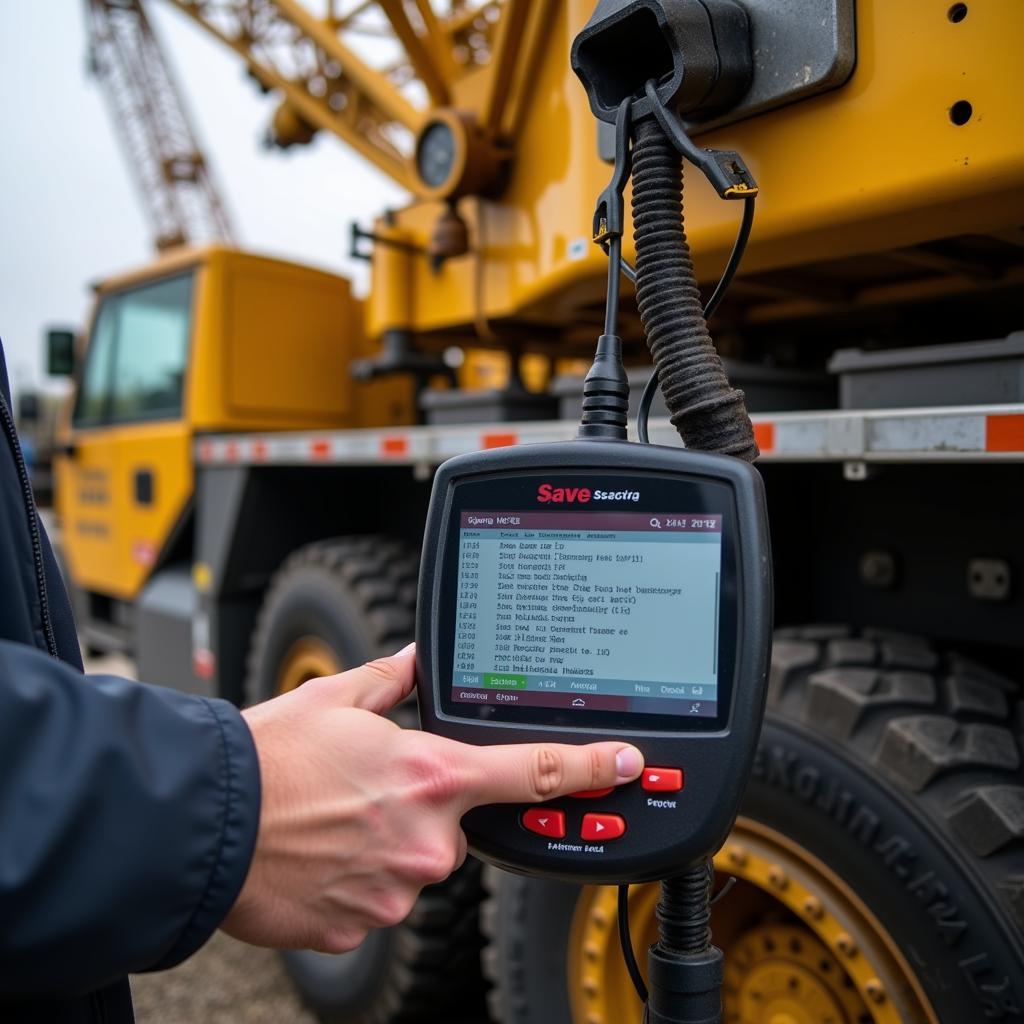Finding the Best Hvac Diagnostic Tools can be challenging. Whether you’re a seasoned HVAC technician or a car owner tackling DIY repairs, having the right diagnostic equipment is crucial for accurate troubleshooting and efficient repairs. This guide explores the top HVAC diagnostic tools available, helping you understand their functions and benefits, and ultimately choose the best tools for your needs.
After you’ve familiarized yourself with the tools available, check out our resources on hvac diagnostics tools for even more in-depth information.
Understanding the Importance of HVAC Diagnostic Tools
HVAC systems, particularly in vehicles, are complex networks of components working together to maintain comfortable cabin temperatures. A malfunction in any part of this system can lead to discomfort, reduced fuel efficiency, and even potential damage to other vehicle systems. Effective diagnosis requires specialized tools that go beyond basic multimeters. These advanced tools allow technicians and DIYers to pinpoint the root cause of problems quickly, saving time and money on unnecessary repairs.
Types of HVAC Diagnostic Tools and Their Uses
Several types of HVAC diagnostic tools cater to specific diagnostic needs. Let’s explore some of the most common and essential ones:
Thermometers and Temperature Sensors
These tools measure temperatures at various points in the system, such as air vents, refrigerant lines, and components like the evaporator and condenser. Accurate temperature readings are essential for identifying imbalances and refrigerant leaks.
Pressure Gauges (Manifold Gauge Sets)
Manifold gauge sets are essential for measuring refrigerant pressures within the system. These readings provide valuable insights into the system’s overall health and can help identify issues like low refrigerant charge, overcharging, or blockages.
Leak Detectors
Refrigerant leaks are a common HVAC problem. Electronic leak detectors are highly sensitive instruments that can detect even the smallest refrigerant leaks, allowing for prompt repairs and minimizing environmental impact.
Vacuum Pumps
Vacuum pumps are used to remove air and moisture from the HVAC system before recharging with refrigerant. A proper vacuum ensures optimal system performance and prevents contamination.
Recovery/Recycle/Recharge Machines
These machines are essential for safely recovering, recycling, and recharging refrigerant. They are particularly important for complying with environmental regulations regarding refrigerant handling.
Diagnostic Scanners
Modern vehicles utilize sophisticated electronic control systems that manage various functions, including the HVAC system. Diagnostic scanners can communicate with these systems to retrieve diagnostic trouble codes (DTCs) related to HVAC problems. This provides valuable information for troubleshooting complex electronic issues.
Digital Multimeters
While basic, multimeters are still valuable for checking electrical circuits, sensors, and actuators within the HVAC system. They can measure voltage, current, and resistance, helping identify faulty components.
Choosing the Right HVAC Diagnostic Tools
Selecting the appropriate tools depends on several factors, including your level of expertise, the types of vehicles you work on, and your budget. For DIYers, investing in a quality thermometer, pressure gauge set, and a basic leak detector can be a good starting point. Professional technicians require a more comprehensive set of tools, including advanced diagnostic scanners, recovery/recycle/recharge machines, and specialized leak detectors.
You can find free downloads for specific diagnostic tools, such as the il diagnostic tool free download.
How to Use HVAC Diagnostic Tools Effectively
Proper training is essential for using HVAC diagnostic tools effectively. Always follow manufacturer instructions and safety guidelines. Understanding the underlying principles of HVAC system operation is crucial for interpreting diagnostic readings accurately. Online resources, training manuals, and workshops can provide valuable guidance.
Maintaining Your HVAC Diagnostic Tools
Proper maintenance ensures the accuracy and longevity of your diagnostic tools. Regularly calibrate gauges and sensors, inspect hoses and connections for leaks, and store tools in a clean and dry environment.
Staying Up-to-Date with the Latest Technology
The automotive industry is constantly evolving, and HVAC systems are becoming increasingly complex. Stay informed about the latest diagnostic tools and techniques by attending industry events, subscribing to trade publications, and participating in online forums. For example, resources like thermography as diagnostic tool critique can provide valuable insights into emerging technologies.
Conclusion
Investing in the best HVAC diagnostic tools is a wise decision for anyone involved in automotive HVAC repair. Whether you’re a professional technician or a car owner, having the right tools empowers you to diagnose problems accurately, perform efficient repairs, and save time and money in the long run. Don’t hesitate to connect with us at ScanToolUS for expert advice and support. You can reach us at +1 (641) 206-8880 or visit our office at 1615 S Laramie Ave, Cicero, IL 60804, USA. We’re here to help you find the best HVAC diagnostic tools for your specific needs. Remember, accurate diagnosis is the first step towards effective repair.
You can explore further options for specific HVAC diagnostic tools with resources like the trane pic diagnostic tool download.



Pingback: Best HVAC Diagnostic Tools Car: Keeping Your Cool - Car Scan Tool